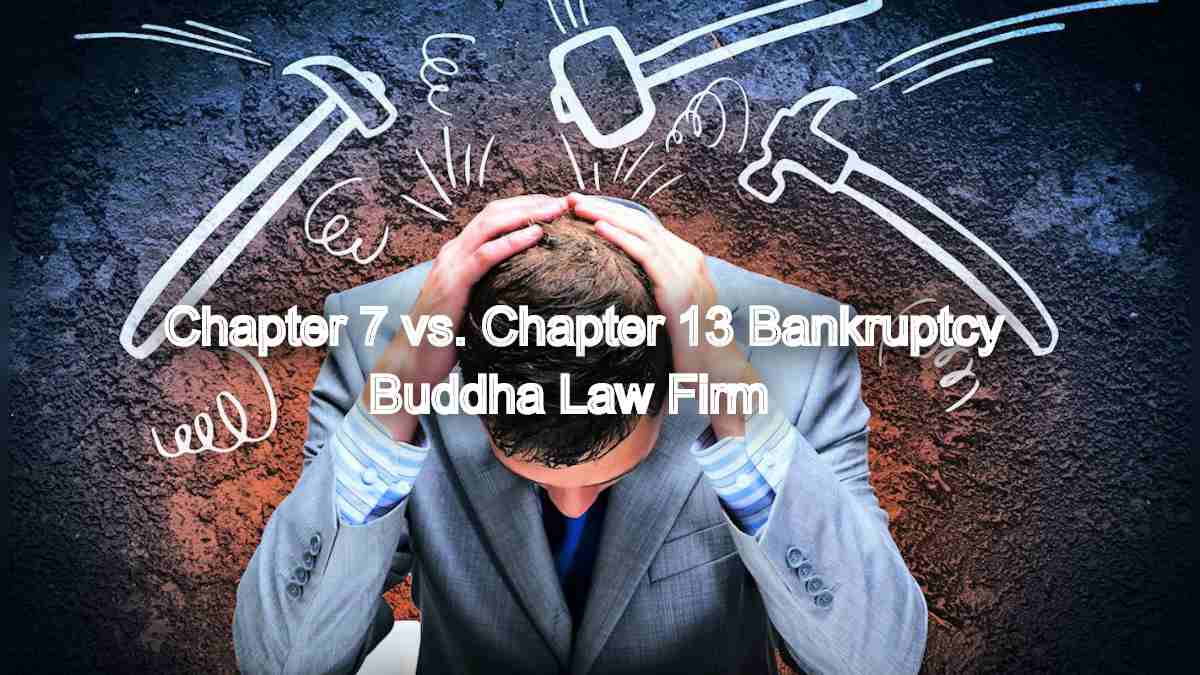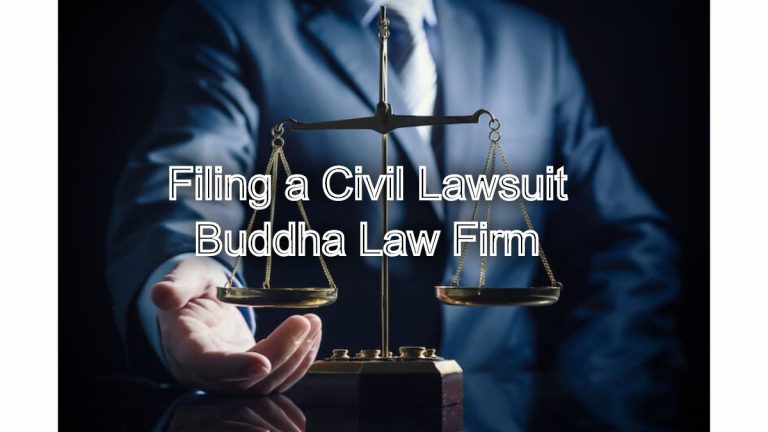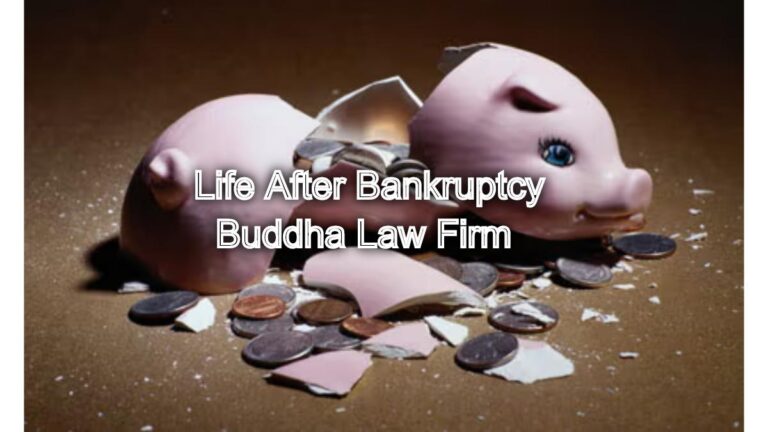Bankruptcy Basics: Bankruptcy can be a daunting process, especially for individuals struggling with overwhelming debt. Two of the most common types of bankruptcy are Chapter 7 and Chapter 13. Understanding the key differences between these two options is crucial in making informed decisions.
Bankruptcy Basics: Understanding Chapter 7 vs. Chapter 13 Bankruptcy: Buddha Law Firm
What is Bankruptcy?
Bankruptcy is a legal process that allows individuals and businesses to relieve themselves of debt obligations. It involves filing a petition with a bankruptcy court, which oversees the process and appoints a trustee to manage the debtor’s assets.
Chapter 7 Bankruptcy: A Fresh Start
Chapter 7 bankruptcy, often referred to as liquidation bankruptcy, is designed to provide individuals with a fresh start by eliminating most of their debts. In a Chapter 7 bankruptcy, a trustee is appointed to liquidate the debtor’s non-exempt assets, such as vehicles and real estate. The proceeds from the liquidation are used to pay off creditors. Once the liquidation process is complete, the remaining debts are discharged, and the debtor is released from their financial obligations.
Key Features of Chapter 7 Bankruptcy:
- Liquidation of Assets: Non-exempt assets are sold to pay off creditors.
- Discharge of Debts: Most debts are discharged, including credit card debt, medical bills, and unsecured loans.
- Quick Process: Chapter 7 bankruptcy is typically a relatively quick process, often taking a few months to complete.
- Eligibility Restrictions: Not everyone is eligible for Chapter 7 bankruptcy. Income and asset limits may apply.
Chapter 13 Bankruptcy: A Repayment Plan
Chapter 13 bankruptcy, also known as reorganization bankruptcy, allows individuals to repay their debts over a specific period, usually three to five years. Under this plan, the debtor works with a court-appointed trustee to develop a repayment plan that is affordable and feasible. The trustee collects payments from the debtor and distributes them to creditors according to the plan.
Key Features of Chapter 13 Bankruptcy:
- Repayment Plan: Debtors must create a repayment plan to pay off a portion of their debts over time.
- Debt Reorganization: Chapter 13 allows debtors to reorganize their debts and extend payment terms.
- Protection from Creditors: During the bankruptcy process, creditors are prohibited from taking collection actions.
- Potential to Save Assets: Chapter 13 can help debtors keep their assets, such as homes and cars.
Choosing the Right Chapter
The decision to file for Chapter 7 or Chapter 13 bankruptcy depends on various factors, including income, assets, and financial goals. Consulting with an experienced bankruptcy attorney can help you determine the best option for your specific circumstances.
Buddha Law Firm: Your Trusted Legal Partner
At Buddha Law Firm, we understand the complexities of bankruptcy law and are committed to providing personalized legal advice and representation. Our experienced attorneys will guide you through the entire bankruptcy process, ensuring that your rights are protected and your financial future is secured.
FAQs: Bankruptcy Basics
Chapter 7 Bankruptcy: Involves liquidation of assets to pay off creditors. Most debts are discharged.
Chapter 13 Bankruptcy: Involves a repayment plan where you pay off a portion of your debts over time. You may be able to keep your assets.
Eligibility for bankruptcy depends on various factors, including income, assets, and financial circumstances. Consulting with a bankruptcy attorney can help determine your eligibility.
The trustee may liquidate non-exempt assets in Chapter 7 bankruptcy to pay off creditors. In Chapter 13 bankruptcy, you may be able to keep your assets, but you’ll need to include them in your repayment plan.
Yes, you can continue to work during the bankruptcy process. However, you may need to adjust your budget to meet your repayment obligations.
The length of the bankruptcy process varies depending on the type of bankruptcy and individual circumstances. Chapter 7 bankruptcy is typically shorter, while Chapter 13 can take several years.
Conclusion
Bankruptcy can be a powerful tool for individuals struggling with overwhelming debt. By understanding the key differences between Chapter 7 and Chapter 13 bankruptcy, you can make informed decisions and take control of your financial future. If you are considering bankruptcy, it is essential to seek legal advice from qualified professionals to navigate the complexities of the process.
Read More
- Starting a Small Business: Legal Requirements and Steps to Success
- Avoiding Probate: Strategies for Minimizing Estate Taxes and Simplifying Asset Distribution
- Creating a Comprehensive Estate Plan: Key Components and Legal Considerations
- The Importance of Estate Planning: Securing Your Legacy and Protecting Your Loved Ones
- Divorce Mediation vs. Litigation: Which Option is Right for You?
- Insolvency and Bankruptcy Board of India (IBBI):




